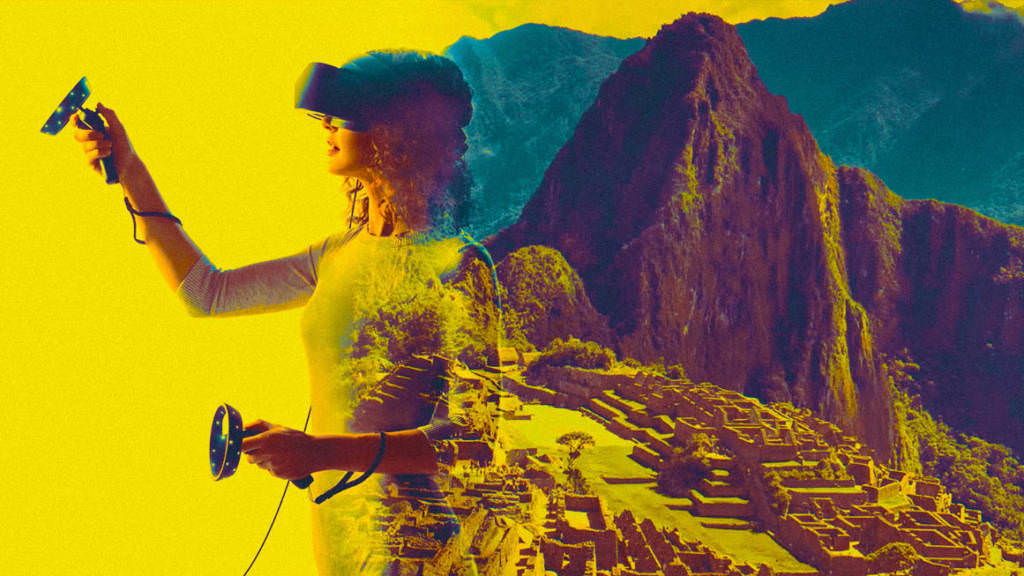As a tech and gaming giant, Microsoft is in a unique position to invest in emerging technology and right now, the company has its sights set firmly on augmented, virtual and mixed reality. Should Microsoft’s efforts be successful, other brands may soon find new opportunities to market within the virtual space.
Microsoft acquired social VR site AltspaceVR—a cross-platform service that allows users to connect in virtual environments for events and hangouts. One couple even hosted their wedding on the site, allowing all their virtual friends to celebrate.
According to a recent study by Greenlight, 67 percent said they’re interested in social VR. Of those who have already tried VR, that number shoots up to 78 percent. Social apps like AltspaceVR bridge the gap between isolation in a headset and sharing experiences with others.
Seventy-six percent of Greenlight’s respondents said they would use social VR apps at least once a week, and 28 percent want to spend time using social VR every day.
AltSpaceVR shut down briefly after hesitant investors backed out, but then came back on after a conversation with HoloLens inventor and Microsoft technical fellow Alex Kipman, who found overlap between his visions for mixed reality and social VR. The acquisition means AltspaceVR’s passionate community can keep their home away from home, and Microsoft takes a big step toward competing with Facebook Spaces.
https://youtu.be/esgZ8vBkV0U
“What the industry needs now are companies who have the pockets and the patience to innovate and develop compelling experiences and Microsoft fits that bill,” Debby Ruth, senior vice president of global media and entertainment at Magid, told AListDaily. “The HoloLens was a significant standalone AR technology advancement, and being able to leverage that knowledge base to integrate VR and AR experiences will advance the industry.”
“Right now in the US there are roughly 44 million people who state they find VR interesting and intriguing enough to consider a purchase in the next year—but few are acting on that interest. The hesitation is equal parts price, content and the early-stage headsets, but our research also reveals there is not yet a compelling use case. The emergence of social VR—AltspaceVR and Sansar for example—could help change that.”
Stephanie Llamas, vice president of research and strategy for SuperData Research, says the acquisition of AltspaceVR is not only good for Microsoft, but for the entire industry.
“Microsoft wants to compete with the big guns already entrenched in the industry, so who better to partner with than a company with so much fan loyalty their users literally revived the dying platform (almost) by themselves?” Llamas wrote of the AltSpaceVR acquisition on her blog. “Microsoft will continue to allow AltspaceVR to run on other devices as it has up until now. Like HTC Vive, Microsoft wants to forward this industry as a whole knowing that is the only way they themselves can succeed.
“Expect this to be the beginning of VR’s next wave of major funding—funding that could finally get us the shovel we need to dig VR out of this trough everyone has been dwelling on so much.”
The HoloLens is already changing the industrial sector, including medical and automotive manufacturing, by offering interactive visualization but has yet to take hold of the consumer market. To bridge this gap, Microsoft has revealed a new line of mixed reality laptops, headsets and motion controllers.
“We are standing at the threshold of the next revolution in computing—a revolution where computers empower us to expand our capabilities and transcend time, space and devices.” Alex Kipman wrote on the Microsoft blog following a Samsung presentation Tuesday. “A revolution where we immerse ourselves in virtual worlds of our choosing and we accomplish seemingly impossible things while making lasting memories with the people we love.”
https://youtu.be/0AWhsBNU1jU
Brands are already experimenting with ads within a virtual environment. Film studios like Lionsgate, Paramount, Warner Brothers and Legendary Pictures create branded VR experiences to compliment theatrical releases. In a study testing the effectiveness of marketing in VR, brand recall was at least eight times more effective and resulted in double the intent to share.

